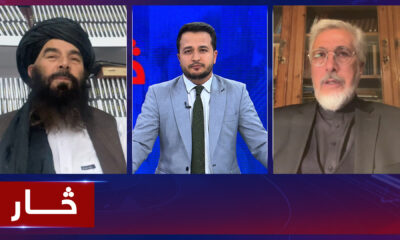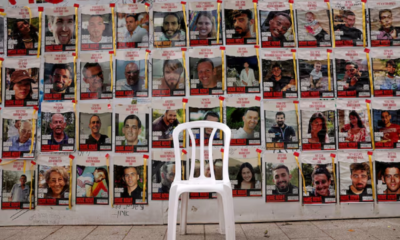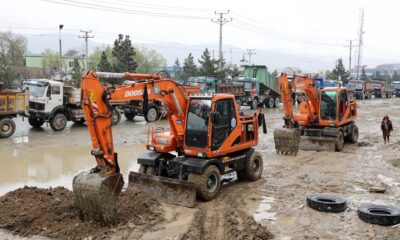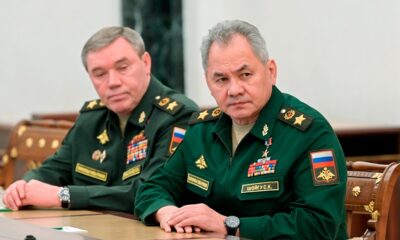Regional
US and Iran to swap detainees after $6 billion unfrozen
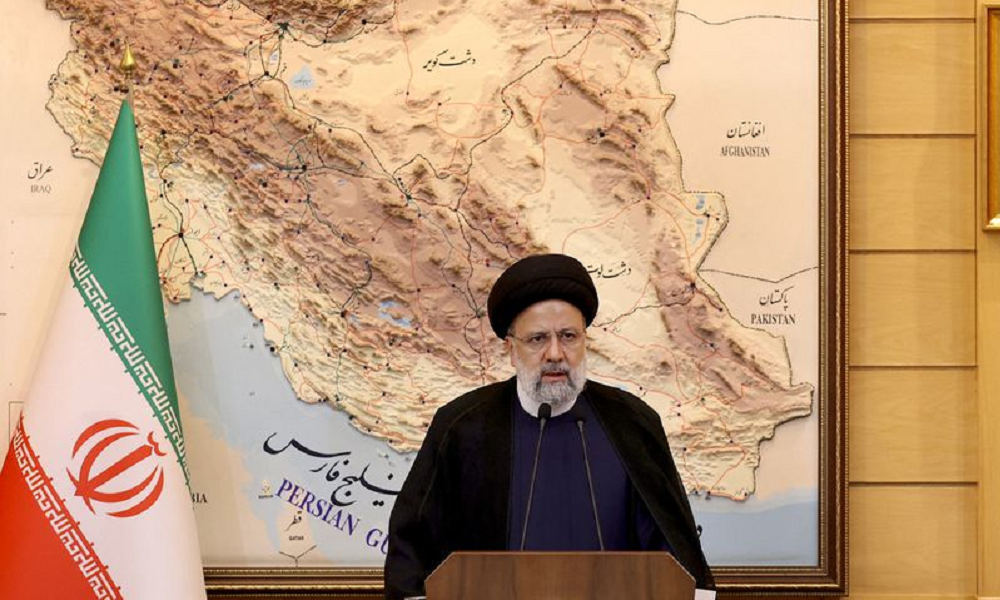
A Qatari plane waited in Iran on Monday to fly out five U.S. detainees in a swap for five Iranians held in the United States, thanks to a Doha-mediated deal that has also unfrozen $6 billion of Iranian funds.
Iran and the United States were told the funds had been transferred to accounts in Qatar, a source briefed on the matter told Reuters. That triggered an exchange sequence agreed after months of talks between the arch foes, who are at odds over Tehran’s nuclear ambitions and a host of other issues.
“A Qatari aircraft is on standby in Iran waiting to fly five soon-to-be released U.S. citizens and two relatives to Doha on Monday morning,” the source said.
Iran’s Foreign Ministry spokesperson Nasser Kanaani said the funds, blocked in South Korea after U.S. sanctions on Iran were hardened in 2018, would be available to Tehran on Monday. Under the deal, Qatar will ensure it is spent on humanitarian goods, Reuters reported.
There was no immediate public U.S. comment.
The five Americans with dual nationality are expected to fly on from Doha to the United States. In return, five Iranians detained in the U.S. will be released.
The Iranian Foreign ministry spokesperson said two Iranians would return to Iran while two would stay in the U.S. at their request. One detainee would join his family in a third country, he added.
The deal will remove a major irritant between the U.S., which brands Tehran a state sponsor of terrorism, and Iran, which calls Washington the “Great Satan”.
But they remain deeply divided on other issues ranging from Iran’s nuclear programme and its influence around the region to U.S. sanctions and America’s military presence in the Gulf.
Qatar, a tiny but hugely wealthy Gulf Arab energy producer, has sought to raise its global profile, hosting the soccer World Cup last year and carving out a role in international diplomacy. The Sunni Muslim nation hosts a big U.S. military base but has also forged close ties with Shi’ite Muslim Iran.
Doha hosted at least eight rounds of talks with Iranian and U.S. negotiators sitting in separate hotels, speaking via shuttle diplomacy, a source previously told Reuters.
Qatar’s monitoring role
Under the agreement, Doha agreed to monitor how Iran spends the unfrozen funds to ensure the cash is spent on humanitarian goods, such as food and medicine, and not any items under U.S. sanctions.
The transfer of Iran’s funds has drawn criticism from U.S. Republicans who say Biden, a Democrat, is in effect paying a ransom for U.S. citizens. The White House has defended the deal.
The U.S. dual citizens to be released include Siamak Namazi, 51, and Emad Sharqi, 59, both businessmen, and Morad Tahbaz, 67, an environmentalist who also holds British nationality. They were released from prison and put under house arrest last month, Reuters reported.
A fourth U.S. citizen was also released into house arrest, while a fifth was already under house arrest. Their identities have not been disclosed.
Iranian officials have named the five Iranians to be released by the U.S. as Mehrdad Moin-Ansari, Kambiz Attar-Kashani, Reza Sarhangpour-Kafrani, Amin Hassanzadeh and Kaveh Afrasiabi. Two Iranian officials previously said that Afrasiabi would remain in the United States but had not mentioned others.
Ties between Washington and Tehran have been boiling since Donald Trump, a Republican, pulled the U.S. out of a nuclear deal between Iran and global powers when he was president in 2018. Reaching another nuclear deal has gained little traction since, as President Joe Biden prepares for the 2024 U.S. election.
As a first step in the deal, Washington waived sanctions to allow the transfer of $6 billion in Iranian funds from South Korea to Qatar. The funds were blocked in South Korea, normally one of Iran’s largest oil customers, when Washington imposed sweeping financial sanctions on Tehran and the cash could not be transferred.
Regional
China to host Hamas, Fatah for Palestinian unity talks

China will host Palestinian unity talks between Hamas and its rivals Fatah, the two groups and a Beijing-based diplomat said on Friday, a notable Chinese foray into Palestinian diplomacy amid the war in the Gaza Strip.
Hamas, which controls Gaza, is the group whose fighters stormed into Israeli towns on Oct. 7, killing 1,200 people and capturing 253 hostages. Israel has sworn to annihilate Hamas in an onslaught that has killed more than 34,000 Palestinians.
Fatah is the movement of Mahmoud Abbas, president of the Western-backed Palestinian Authority, which exercises limited self-rule in the Israeli occupied West Bank.
The two rival Palestinian factions have failed to heal their political disputes since Hamas fighters expelled Fatah from Gaza in a short war in 2007. Washington is wary of moves to reconcile the two groups, as it supports the PA but has banned Hamas as terrorists.
A Fatah official told Reuters a delegation, led by the group’s senior official Azzam Al-Ahmed, had left for China. A Hamas official said the faction’s team for the talks, led by senior Hamas official Moussa Abu Marzouk, would be flying there later on Friday.
“We support strengthening the authority of the Palestinian National Authority, and support all Palestinian factions in achieving reconciliation and increasing solidarity through dialogue and consultation,” said Chinese Foreign Ministry spokesperson Wang Wenbin at a regular briefing on Friday, without confirming the meeting.
The visit will be the first time a Hamas delegation is publicly known to have gone to China since the start of the war in Gaza. A Chinese diplomat, Wang Kejian, met Hamas chief Ismail Haniyeh in Qatar last month, according to the Chinese foreign ministry.
The Beijing-based diplomat, who had been briefed on the matter, said the talks aimed to support efforts to reconcile the two Palestinian rival groups.
China has lately demonstrated growing diplomatic influence in the Middle East, where it enjoys strong ties with Arab nations and Iran. Last year, Beijing brokered a breakthrough peace deal between longstanding regional foes Saudi Arabia and Iran.
U.S. Secretary of State Antony Blinken said he discussed with Chinese President Xi Jinping and other officials in Beijing on Friday how China can play a constructive role in global crises, including the Middle East.
Chinese officials have ramped up advocacy for the Palestinians in international forums in recent months, calling for a larger-scale Israeli-Palestinian peace conference and a specific timetable to implement a two-state solution.
In February, Beijing urged the International Court of Justice (ICJ) to give its opinion on the Israeli occupation of the Palestinian Territories, which it said was illegal.
More recently, China has been pushing for Palestine to join the United Nations, which Beijing’s top diplomat Wang Yi said last week would “rectify a prolonged historical injustice”.
(Reuters)
Regional
New UK sanctions target Iranian drone industry

Britain on Thursday announced new sanctions targeting Iran’s military drone industry, in response to Iran’s drone and missile attack on Israel earlier this month.
The measures, taken in co-ordination with the U.S. and Canada, target four businesses and two directors at a network of drone companies with the aim of limiting Iran’s ability to launch drones.
“The Iranian regime’s dangerous attack on Israel risked thousands of civilian casualties and wider escalation in the region,” British Foreign Secretary David Cameron said in a statement.
“Today the UK and our partners have sent a clear message – we will hold those responsible for Iran’s destabilising behaviour to account.”
Britain also said it would introduce new bans on the export of drone and missile components to Iran, seeking to limit its military capabilities.
Last week, Britain imposed sanctions on Iranian military figures and organisations, in another coordinated move with the United States, following Iran’s action against Israel.
Iran launched drones and fired missiles at Israel on April 13 as a retaliatory strike for the attack on its embassy compound in Damascus two weeks prior, raising the risk of further escalation in conflict in the Middle East.
(Reuters)
Regional
Turkey accuses U.S. of double standards over Gaza in rights report
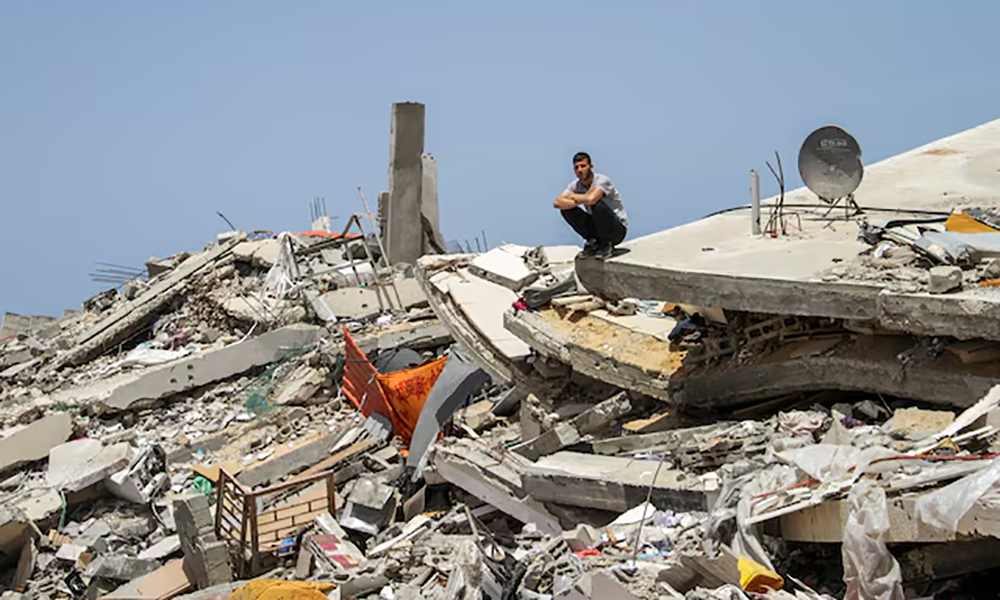
Turkey on Wednesday accused the United States of having a policy of double standards on human rights, saying Washington’s annual rights report failed to reflect Israel’s assaults in Gaza, Reuters reported.
Turkey’s foreign ministry said in a statement it was deeply concerned that the U.S. report did not “duly reflect the ongoing inhumane attacks in Gaza”.
The report was prepared with “political motives, far from impartiality and objectivity”, it said, calling on Washington to cease its “double-standard policy on human rights”.
It also cited U.S. ties with the Syrian Kurdish YPG militia which Ankara deems a terrorist organisation.
Israeli forces have killed more than 34,000 Palestinians in Gaza, according to health authorities there, many of them civilians and children. The enclave has been reduced to a wasteland and extreme food shortages have prompted fears of famine.
Israel launched its assault in response to an attack by the Hamas militant group on Oct. 7 in which Israel says 1,200 people were killed. It denies allegations of deliberately causing humanitarian suffering and targeting civilians.
Turkey has denounced Israel for its campaign in Gaza and called for a ceasefire. It has also criticised Western countries for what it calls their unconditional support of Israel, read the report.
In its report, the U.S. State Department said Israel’s war against Hamas had a “significant negative impact” on the human rights situation in Israel.
On Monday, U.S. Secretary of State AntZony Blinken rejected suggestions that Washington might have double standards over Israel’s record.
-

 Latest News4 days ago
Latest News4 days agoRashid Khan named AWCC’s brand ambassador
-

 World4 days ago
World4 days agoMalaysian navy helicopters collide in mid-air, 10 killed
-

 Sport4 days ago
Sport4 days agoJaiswal ton powers Rajasthan to big IPL win
-

 World4 days ago
World4 days agoNorth Korea officials visit Iran in a rare public trip
-

 Latest News5 days ago
Latest News5 days agoAt least 1,500 families affected by recent floods: IRW
-

 Sport4 days ago
Sport4 days agoMawj Sahil player scores stunning halfway line goal in 1-0 win over Jawanan Wahedi
-

 Sport3 days ago
Sport3 days ago‘Serious talent’ Fraser-McGurk bonds with Warner to light up IPL
-

 Latest News4 days ago
Latest News4 days agoUS report cites ‘significant deterioration’ in Afghan women’s rights last year


